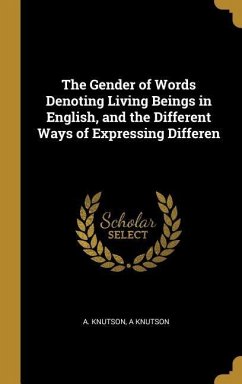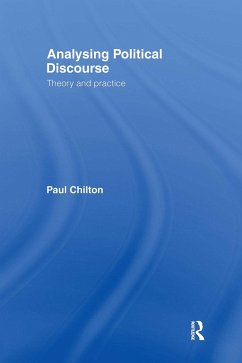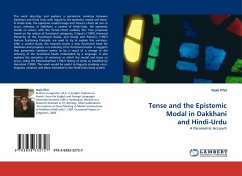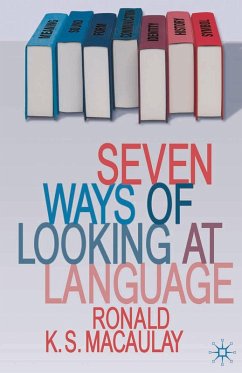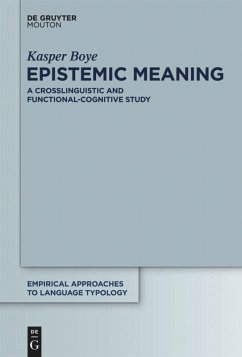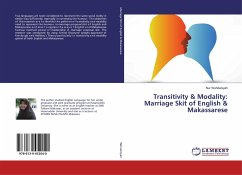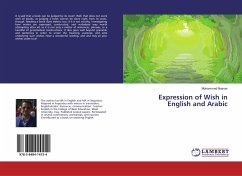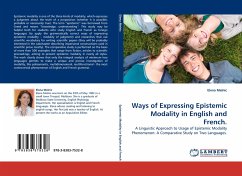
Ways of Expressing Epistemic Modality in English and French.
A Linguistic Approach to Usage of Epistemic Modality Phenomenon: A Comparative Study on Two Languages.
Versandkostenfrei!
Versandfertig in 6-10 Tagen
32,99 €
inkl. MwSt.

PAYBACK Punkte
16 °P sammeln!
Epistemic modality is one of the three kinds of modality, which expresses a judgment about the truth of a proposition (whether it is possible, probable or necessarily true). The term epistemic was borrowed from Greek and means knowledge, understanding . This study may be helpful both for students who study English and French as foreign languages (to apply the grammatically correct ways of expressing epistemic modality modality of judgment) and researches that use scientific vocabulary for writing scientific papers (they will be probably interested in the subchapter describing impersonal constr...
Epistemic modality is one of the three kinds of modality, which expresses a judgment about the truth of a proposition (whether it is possible, probable or necessarily true). The term epistemic was borrowed from Greek and means knowledge, understanding . This study may be helpful both for students who study English and French as foreign languages (to apply the grammatically correct ways of expressing epistemic modality modality of judgment) and researches that use scientific vocabulary for writing scientific papers (they will be probably interested in the subchapter describing impersonal constructions used in scientific prose mostly). The comparative study is performed on the basis of more than 500 examples that range from fiction, articles to scientific proceedings, aiming to present epistemic modality in nearly all styles. The work clearly shows that only the integral analysis of minimum two languages permits to make a unique and precise investigation of modality, this polisemantic, multidimensional, multifunctional - the most controversial phenomenon of English and French grammar.



